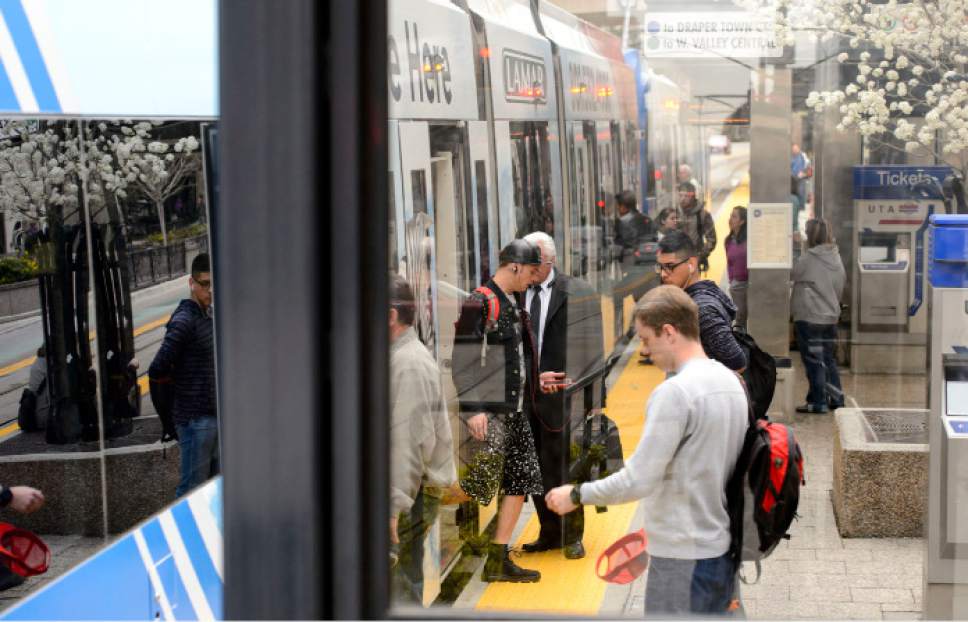This is an archived article that was published on sltrib.com in 2017, and information in the article may be outdated. It is provided only for personal research purposes and may not be reprinted.
The Utah Transit Authority is launching an effort to simplify its current fare system, aiming to design and approve an overhaul by late next year.
"We're at the beginning" of that effort, Nichol Bourdeaux, UTA vice president for external affairs, told the UTA board's Service and Customer Relations Committee on Wednesday, saying it hopes to involve the public on changes and options.
UTA President and CEO Jerry Benson said the agency's fare system has "been kind of piece-mealed" over time to the point that it now accepts 80 different types of fare media — from cash to electronic cards to dozens of different types of monthly and weekly passes negotiated with a variety of schools, employers and others.
The fares charged for the same trip often vary widely according to age of riders, method of payment and deals negotiated by groups that buy passes — plus surcharges may kick in when the price of fuel surpasses certain levels.
"It's confusing to the public and our operators, and we really want to streamline and simplify," Benson said.
"What we are talking about now is really a clean sheet, and coming up with a system that is simple, fair," he said.
Benson said the agency decided it needs to review its overall fare program after it recently studied, then discarded, a proposal to move to "distance-based fares," where people who travel farther would pay more instead of charging passengers one fare for trips of any length.
Benson said the study found that was technically possible for UTA, but the public opposed it because it would have made fares more expensive and complicated for many.
"So we decided to pause, take stock of everything and try to move forward with a comprehensive fare system" review, he said.
Bourdeaux said the agency is looking for ideas by studying fare systems used by similar-size agencies in Dallas; Portland, Ore.; Denver; Minneapolis, Austin, Texas; Cleveland; Houston; and Seattle.
She said the agency is studying different components of fares, including ease of use, promoting ridership, affordability, covering costs, what groups may deserve reduced fares, special fare zones and more.
Bourdeaux said a variety of options will likely be developed to allow for a discussion about the trade-offs that each offer.
She said focus groups and a public hearing process are also planned for potential changes.



